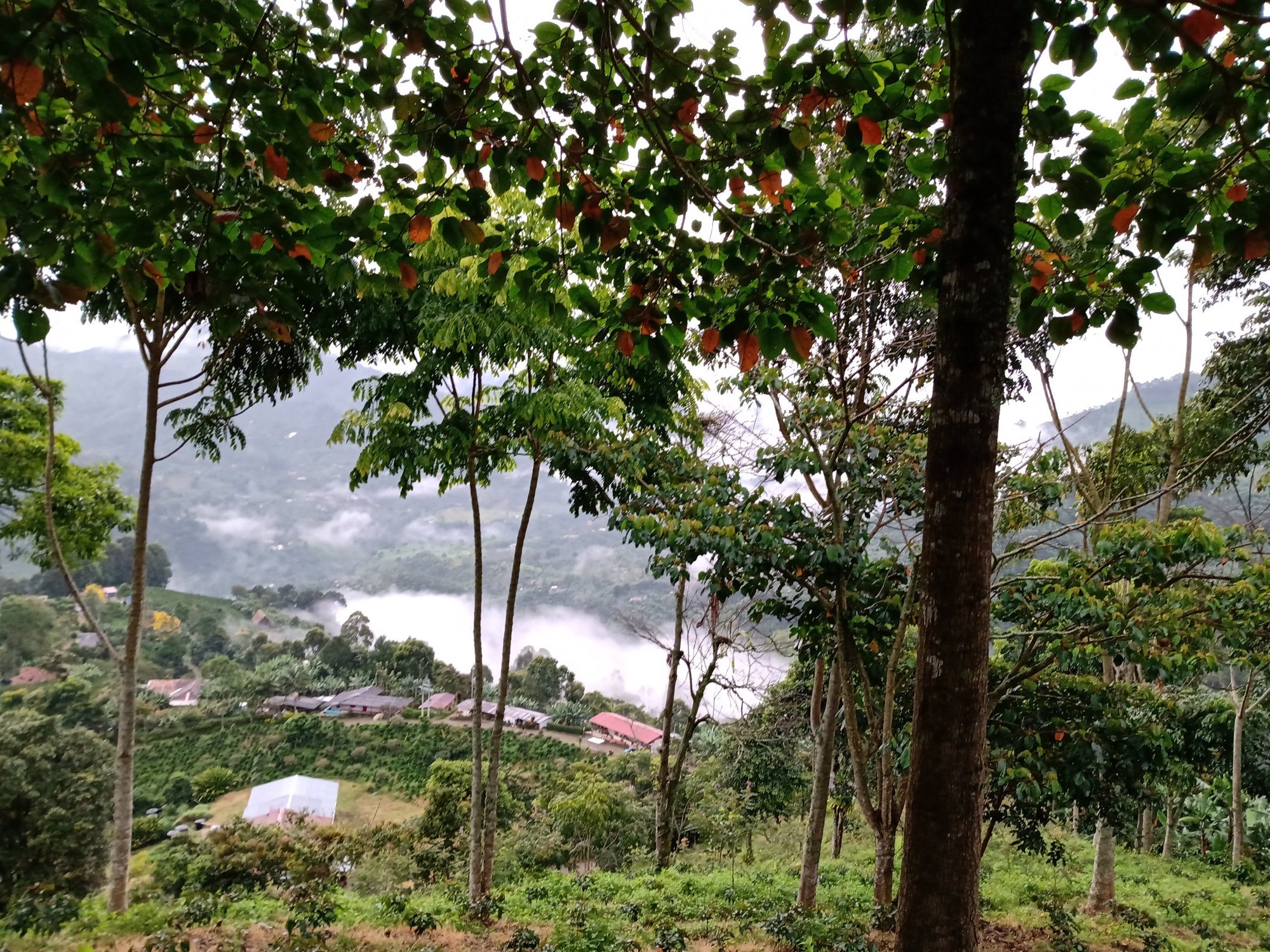

As part of a tight knit family Diego Samuel works on their farm in Cauca with his wife, two daughters and two brothers. The family built their own lab on the farm to curate their own fermentation protocols - their experiments and novel approach to coffee have allowed to them to exceed. They’ve won several awards from 2015 onwards for the production of high-end specialty coffee that is almost unparalleled in the unique flavour and profiles produced. The Villa Esperanza - Paraiso farm in El Tambo, Cauca covers 27 ha of land and this lot we’ve selected for Freak & Unique VIII is a B-40 Pink Bourbon.
95% of the cherries are picked ripe, and the other 5% are on-ripe. The cherries are floated with water that has a high content of ozone in order to lower the microbe quantity, with a 48 hour oxidation of the cherry. Cherries are then depulped and the anaerobic fermentation phase is started. At this point yeast from pineapple isolated extracts is added. Thermal shock occurs while washing the coffee, where secondary aromas are fixed in the coffee. Lastly, there is controlled drying for 34 hours – with a system constantly recirculating air at 35c and a humidity of 25%. This is done until the humidity of the coffee bean is between 10-11%. Parchment is packed in GrainPro bags for 3 days in order to be stabilized.

As the fourth largest country in South America, and the third largest coffee producer in the world, there is no mistaking Colombia’s presence in not only scale, but also skill. The country offers a landscape of contrasts; mountains, forests, coastlines, and micro-climates that work to produce some of the world’s most recognisable coffee.

Once the world’s largest producer of washed coffees, Colombia has had to re-energise the coffee sector after a 2009 case of Leaf Rust decimate much of the production. Thanks to large investment, disease resistant varietals of coffee trees have been planted, and volume has increased from a low of around 7.5million bags to over 12 million in 5 years. Colombia used to produce only washed Arabica coffee, from three main geographical areas trisected by the Andes mountain range. Regional coffees have become increasingly popular and are demonstrable of the distinct flavour profiles available throughout the nation. Coffees are typically mild bodied (hence the categorising term ‘Colombia Milds’), with crisp acidity and citric sweetness.
Your cart is currently empty.